Humanities & Social Sciences
Makerere Screens Tuko Pamoja, Scholars Call for Creative Arts to Be Recognized as Research Output
Published
10 months agoon
By
Jane Anyango
Kampala, Uganda – May 13, 2025
Makerere University on Tuesday screened Tuko Pamoja, a documentary by Dr. Cindy Magara, as part of a wider push by humanities scholars to have creative works recognized as valid academic research output.
The screening, held at the University Main Hall, drew senior university officials, faculty, students, and representatives from national education bodies. The event highlighted growing calls to integrate creative arts into the university’s research and promotion frameworks.
Speaking on behalf of the Dean of the School of Languages, Literature and Communication, Dr. Levis Mugumya emphasized that creative works such as documentaries should be formally considered during academic staff promotions.
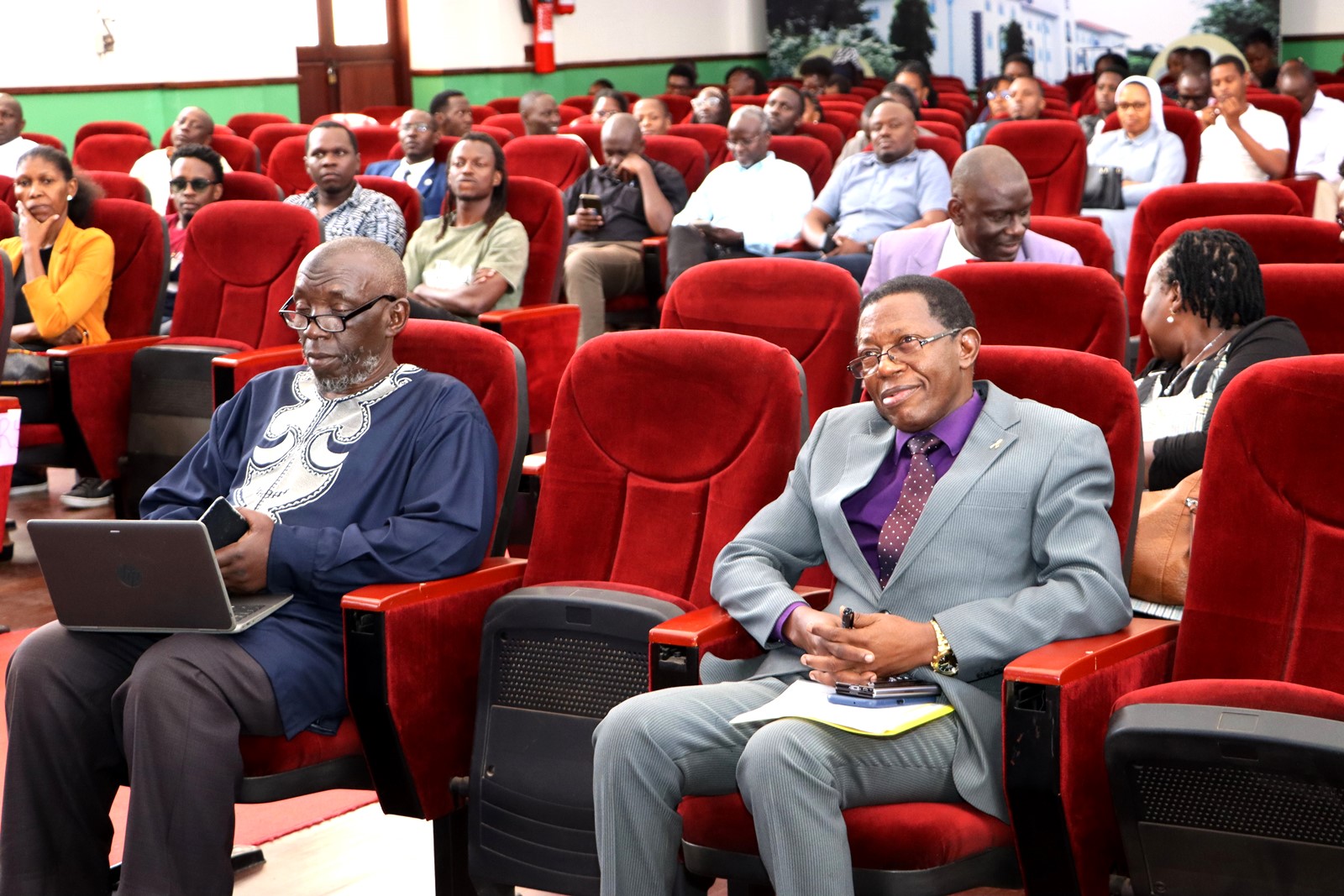
“Creative art should be considered as input that contributes to staff promotion,” Mugumya said. “We need to rethink what counts as academic output.”
Tuko Pamoja—Swahili for We Are One—is a docuseries exploring Uganda’s ethnic diversity and shared historical experiences prior to colonial nation-state formation. Dr. Magara, a literature scholar and filmmaker, was praised for creating a culturally significant work that transcends traditional academic formats.
“This is a great tool for promoting patriotism. It contributes to national development and deepens our understanding of ethnicity and nationhood in Uganda,” Mugumya added.
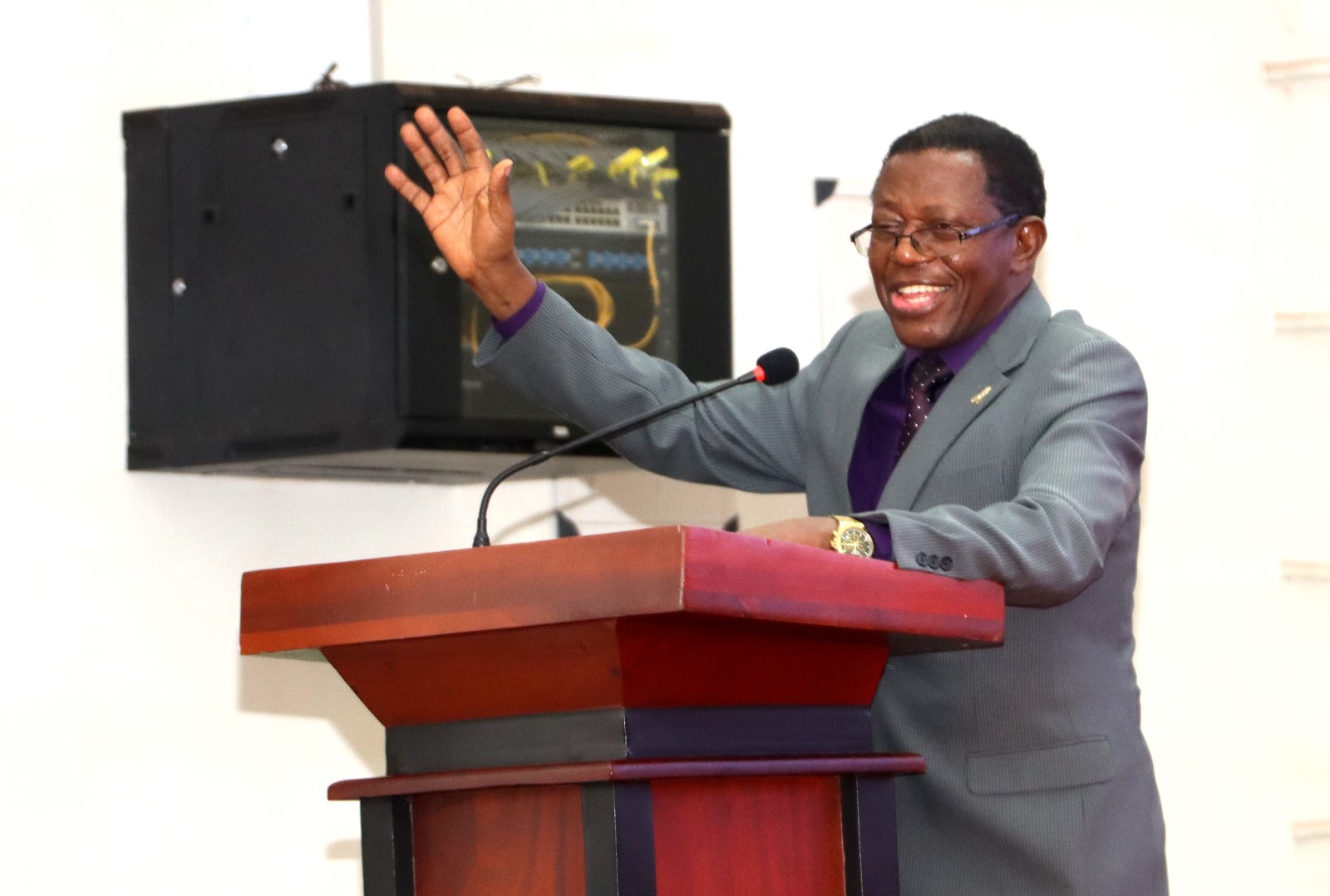
The event was officiated by Professor Mukadasi Buyinza, who represented Vice Chancellor Barnabas Nawangwe. In his speech, Buyinza reiterated Makerere’s commitment to supporting research in the creative arts.
“We cannot promote research only in the STEM disciplines. Resilient communities need a sense of humanity—and creative arts are central to that,” said Buyinza. “Film-making and research are expensive, and we must find partners to support such initiatives.”
He also called for greater collaboration among faculty and students to promote and disseminate creative research outputs like Tuko Pamoja.

Associate Professor Helen Nkabala, Principal of CHUSS, stressed the importance of storytelling in shaping national consciousness and academic relevance.
“At the College of Humanities, we are telling you that we need to unite to tell our story if we are to make meaning to our communities,” she said. “This film shows how humanities research can be innovative, relevant, and impactful.”
Dr. Magara, a former student in the department, was commended by senior colleagues for bridging academic and artistic expression. The event follows a recent management dialogue on the role of humanities in nation-building.
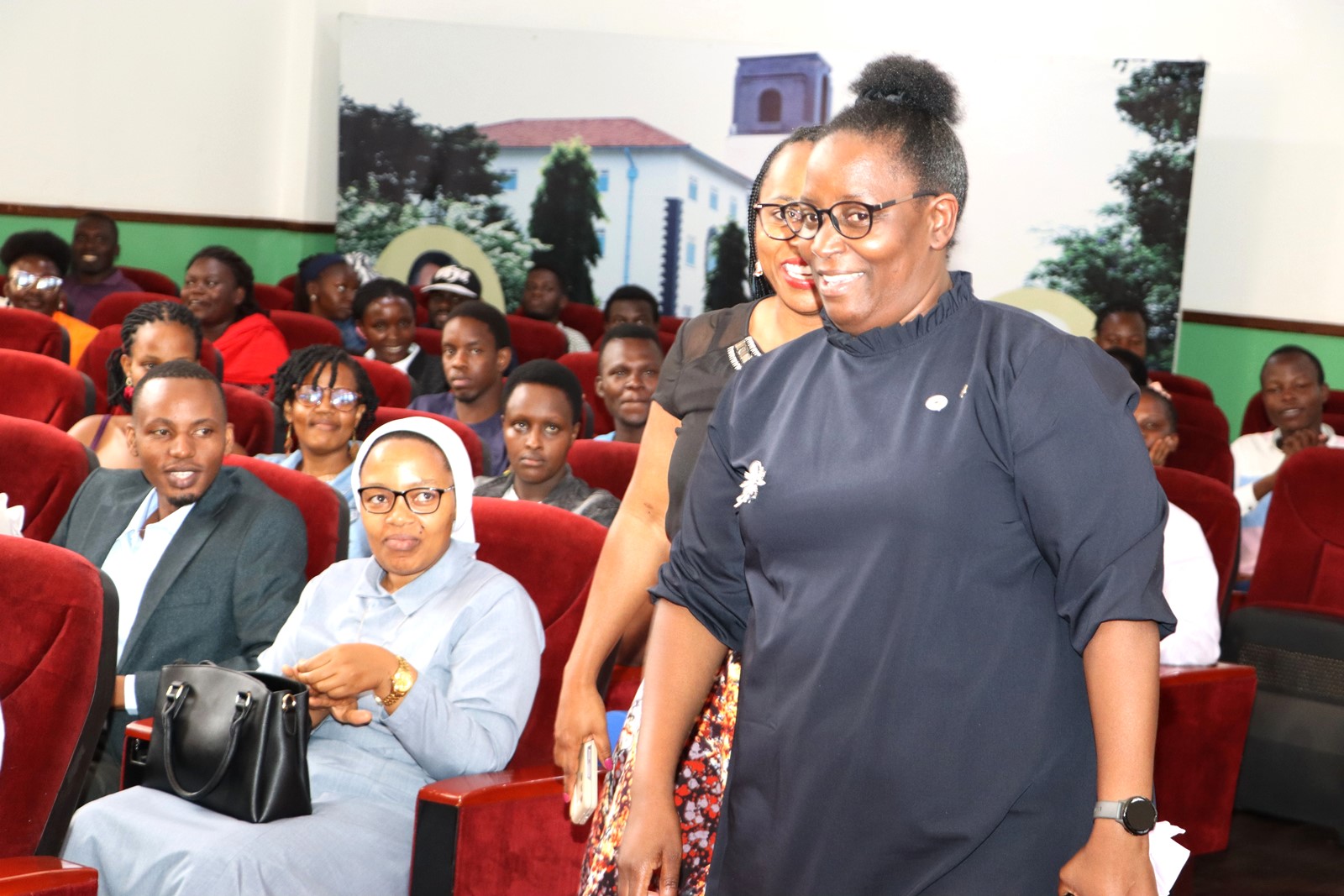
“We need events like this to remind us who we are,” Buyinza concluded. “Unity is not given—it is built through conscious effort and shared history.”
Dr. Cindy Magara Traces Journey from Classroom to Cinema with Launch of Tuko Pamoja Docuseries
Dr. Cindy Evelyn Magara, a literature scholar and pioneering filmmaker recounted her two-decade journey into film-making at Makerere University during the screening of her latest documentary project, Tuko Pamoja. The event was part of a broader discussion on the role of creative arts in academia.
Dr. Magara shared her evolution from a student in Uganda’s first film studies class in 2005 to becoming one of the country’s most recognized female filmmakers. She credited her start to Professor Sister Dominic Dipio, who introduced artesian cinema at Makerere University.

“If it wasn’t for Sister Dipio, possibly I wouldn’t be here. I wouldn’t be a filmmaker,” Magara said. “From the time I made my first film, I knew that was going to be my career path.”
After graduating in 2006, Magara founded Nyati Motion Pictures, a production company named after her clan totem—Mbogo (buffalo). Her first film, Fate, became a historic milestone as the first Ugandan film screened at Cineplex Cinemas and aired on Africa Magic.
She went on to direct Fair Play, an EU-funded project, and Windows of Hope, before pausing her film career to pursue advanced academic studies. “I had to juggle marriage, motherhood, and a master’s degree,” she explained. With mentorship from Professors Susan Kiguli and Dipio, she transitioned into academia and later earned a PhD.
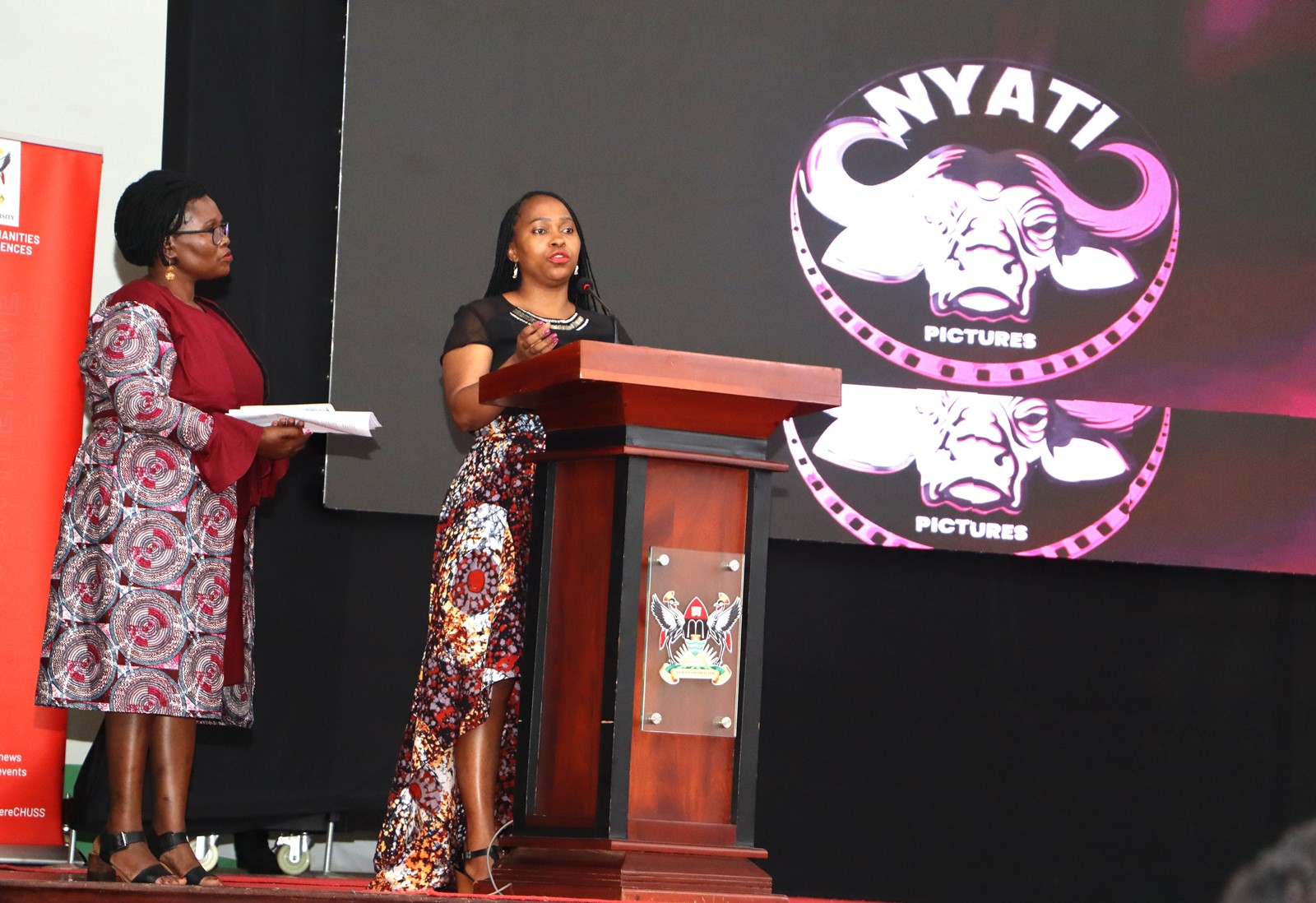
After completing her studies, Magara returned to filmmaking with Tuko Pamoja (Swahili for We Are One), a 13-part documentary series exploring Uganda’s pre-colonial ethnic unity and shared cultural heritage. The project blends various documentary techniques—observation, exposition, interaction, and reflection.
“The documentary seeks to foster cohesion by examining our interconnected past,” she said. “If we were relating together, then we were one.”
Magara revealed that the idea for the series was inspired by the political intrigue of Game of Thrones, likening Uganda’s 19th-century power dynamics—particularly involving historical figures like Kabalega and Mwanga—to an epic African saga.

Originally intended as a single short film to attract funding for a full-length feature, the project evolved into a full series following extensive community research. Magara interviewed historians, cultural leaders, and opinion makers across Uganda. “This became my classroom,” she noted. “I learned so much—I think the Department of History should give me an honorary PhD.”
Tuko Pamoja was premiered in the very communities where the research was conducted, receiving support from local media houses and sponsors. Magara credited UBC, NBS, and Vision Group for providing extensive free media coverage. “UBC told me, ‘We are sorry you’re doing what we should have done long ago,’” she recalled.
The series, currently accessible via nyatimotionpictures.com and the upcoming Nyatiflix app, has also generated academic interest, prompting calls to recognize such creative works as legitimate research outputs.

“We must think of film not only as an art but as research and business,” Magara emphasized. “Film is the evening class. If we fail to tell our stories, someone else will do it for us.”
Magara expressed gratitude to her mentors, students, sponsors, and family—including her husband, who helped finance the production. Plans are underway for wider distribution on local television stations and digital platforms.
As the event concluded, Magara left a message for aspiring creatives: “Film is powerful. It’s how we entertain, educate, and decolonize the screen.”
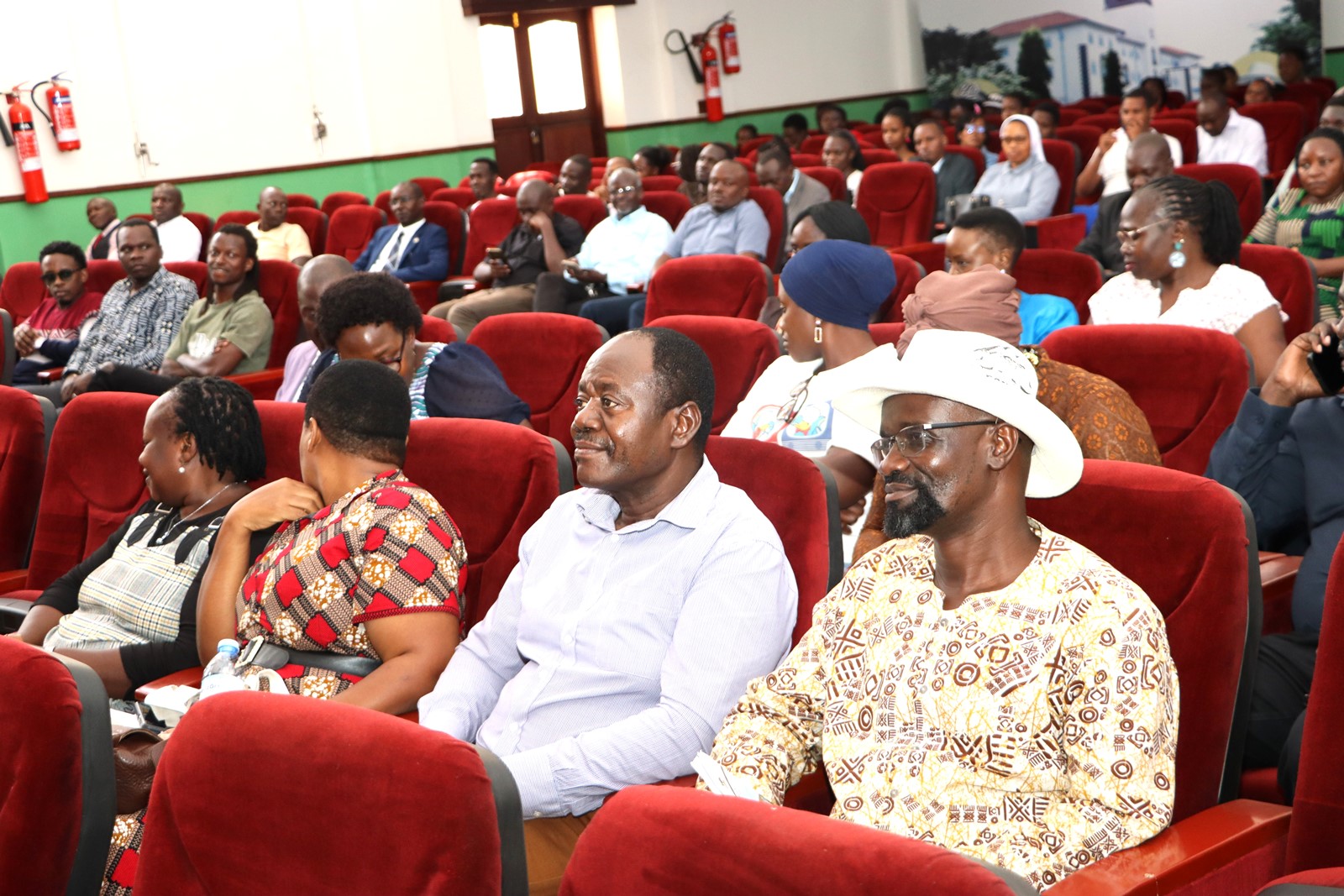
“Lighting the Screen: A Story of Art, Identity, and Nation”
“We need to cultivate an audience. We need to teach our people that consuming art is not luxury—it is culture. It is growth.” Prof. Sr. Dipio Dominica
It was a warm afternoon, and the hall was alive with quiet anticipation. At the front sat three figures who had long walked the corridors of Uganda’s most prestigious institution—each one a torchbearer in the creative arts. Professor Abasi Kiyimba, long known for his eloquence and firm grasp of literature, stood to open the conversation. His voice, familiar and thoughtful, welcomed the audience into a dialogue not just about film, but about the soul of a nation.
“In the Department of Literature,” he began, “we’ve always believed in crossing boundaries. We have mothered other departments—film, drama, music. And now, here we are, watching Uganda retell herself through the lens of the camera.”
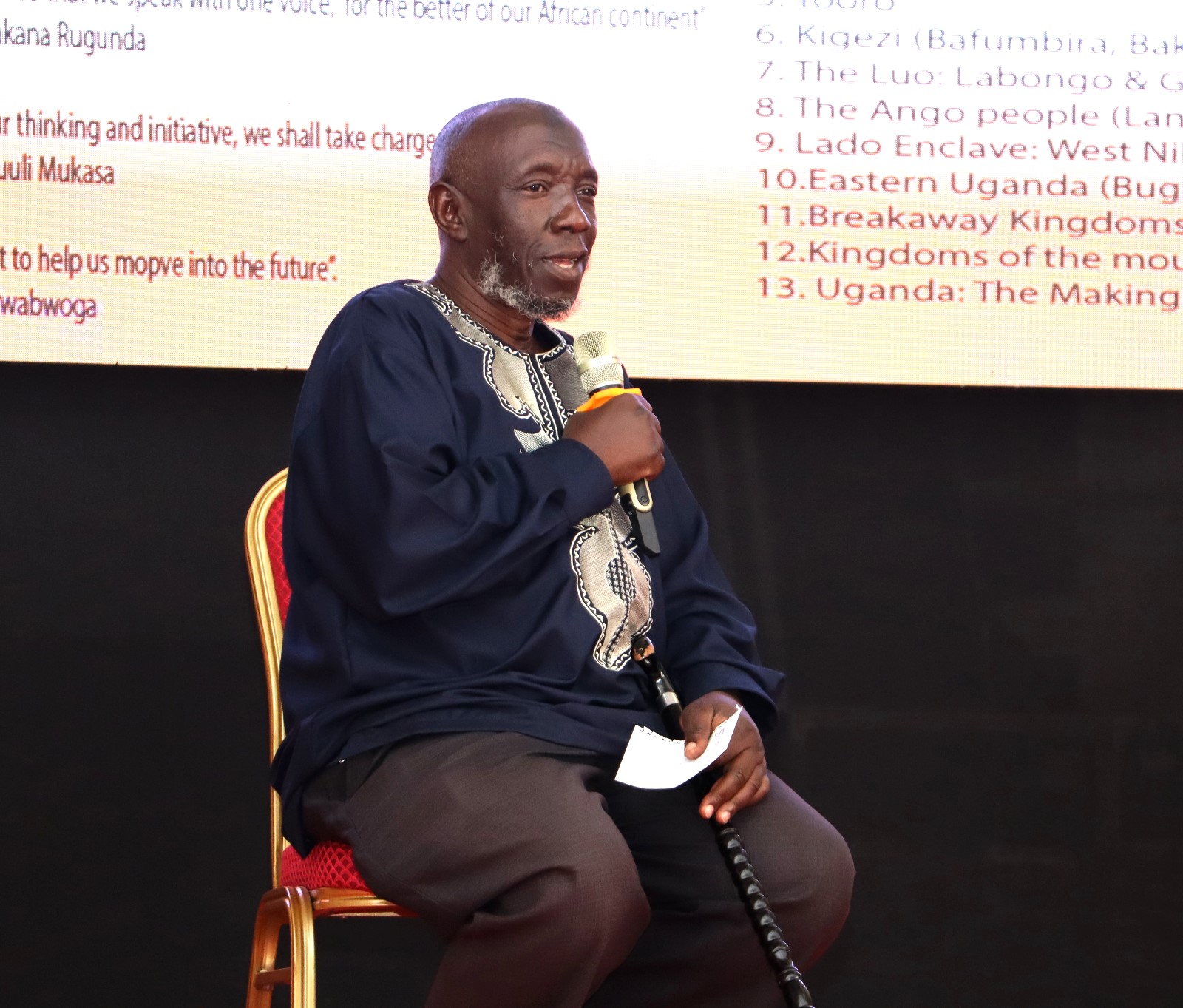
He turned to Professor Dominica Dipio, a former student of his who had become a pioneer in Ugandan film. With a soft smile, he asked, “At what point did you realize that film had to be added to the menu of your literary journey?”
Professor Dipio’s response was part memory, part reflection. She traced her path back to the Pontifical Gregorian University in Rome, where she had gone to study literature. But to her surprise, there was no African literature course. Instead, she was nudged by wise Jesuit professors toward film—a medium they described as an art form closely tied to literature.
“It made sense,” she said. “Storytelling is at the heart of both. Writing with a camera—this is what film allows us to do. It was as though I had been prepared for this all along.”
When she returned to Uganda, she found a generation of students hungry for a new kind of expression. They weren’t waiting to be told what to do. They were already calling themselves filmmakers.
“I had taught them just the basics,” she chuckled, “and they were already making films and introducing themselves as directors. I thought, ‘Please, let’s be humble.’ But inside, I was proud. They had vision.”
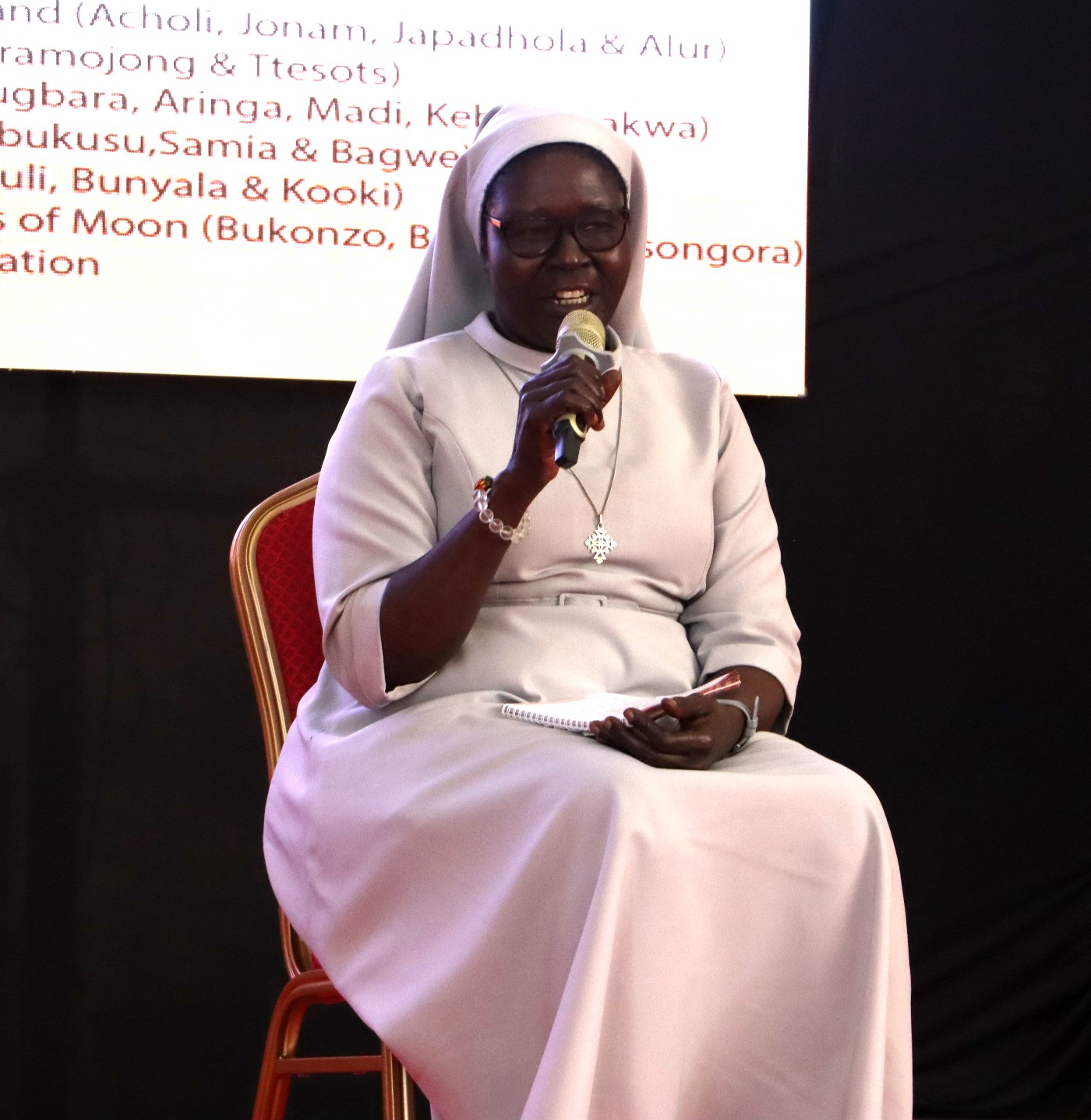
From there, Makerere’s halls began to echo not only with poetry and novels but with the buzz of editing software, the click of cameras, and scripts written in digital ink. Film festivals like Maisha, Amakula, and Zanzibar became essential spaces of collaboration. The National Theatre turned into a second campus.
And sitting beside Dipio was another creative soul with his own journey—Dr. Milton Wabyona, a man who had nearly disappeared from the education system.
“I’m a school dropout,” he confessed quietly. “Few people know that. I was studying physics, economics, and math. But I couldn’t pay fees.”
It was music—specifically a dance troupe—that pulled him back. A woman named Dr. Jessica Kawa recognized his talent and gave him a chance.
“I told her, ‘I don’t care what I study. I just want to go back to school.’ That’s how I entered the creative arts.”
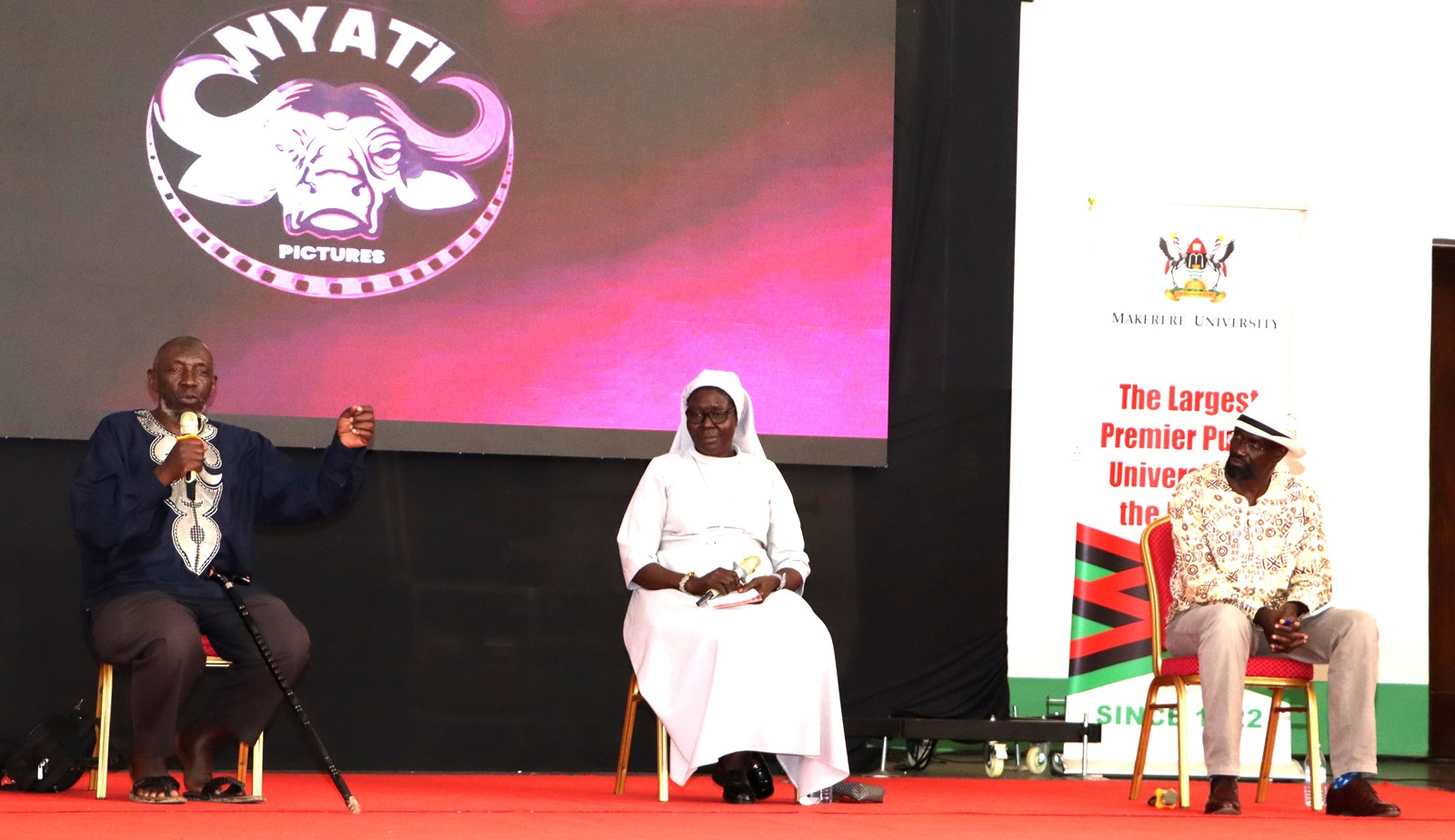
Music, he argued, is more than melody. It teaches collaboration, humanity, and interdependence.
“No matter how gifted I am, I can’t sing harmony alone,” he said. “I need others.”
He quoted Plato, reminding the room that the arts were once central to shaping good citizens and preserving culture. The arts, he said, are not just subjects—they are the soul of education.
As the discussion deepened, Prof. Kiyimba asked a profound question: What is this film we just watched? Is it literature? History? Art?
Professor Dipio leaned back and explained that film, as the “seventh art,” gathers all other forms—literature, painting, music, theatre, sculpture—and weaves them into one cohesive experience. She invoked Aristotle to explain how literature and history are both rooted in reality, but art reshapes that reality, making us see it anew.
“Film is a representation,” she said. “It tells history not by simply stating facts, but by shaping them, giving them voice and character.”

Characters like Queen, Mwanga, Kabelega, and others in the film weren’t just historical names—they had become people with motivations, fears, and contradictions. That was the power of art.
Then Dr. Wabyona took the floor once more.
“Music speaks in ways plain words never can,” he said. “You don’t need to understand Lingala to dance to Congolese music. That’s how powerful rhythm and pitch are.”
But behind the excitement lay a persistent concern—money. Could Ugandan cinema be self-sustaining?
Dipio paused before answering. She didn’t sugarcoat it.
“We are not yet consuming enough art,” she said. “We don’t have the culture of going to the cinema like in Burkina Faso, where the whole country stops for the FESPACO film festival.”
Comedy, she admitted, was one area where Ugandans paid. But serious artistic films struggled.
“We need to cultivate an audience. We need to teach our people that consuming art is not luxury—it is culture. It is growth.”
Wabyona agreed. He shared how many Ugandan productions, like Ndere Troupe, offer free shows, yet the audiences are overwhelmingly foreign.
“When your own people don’t show up,” he said, “you begin to understand the kind of crisis we’re in.”
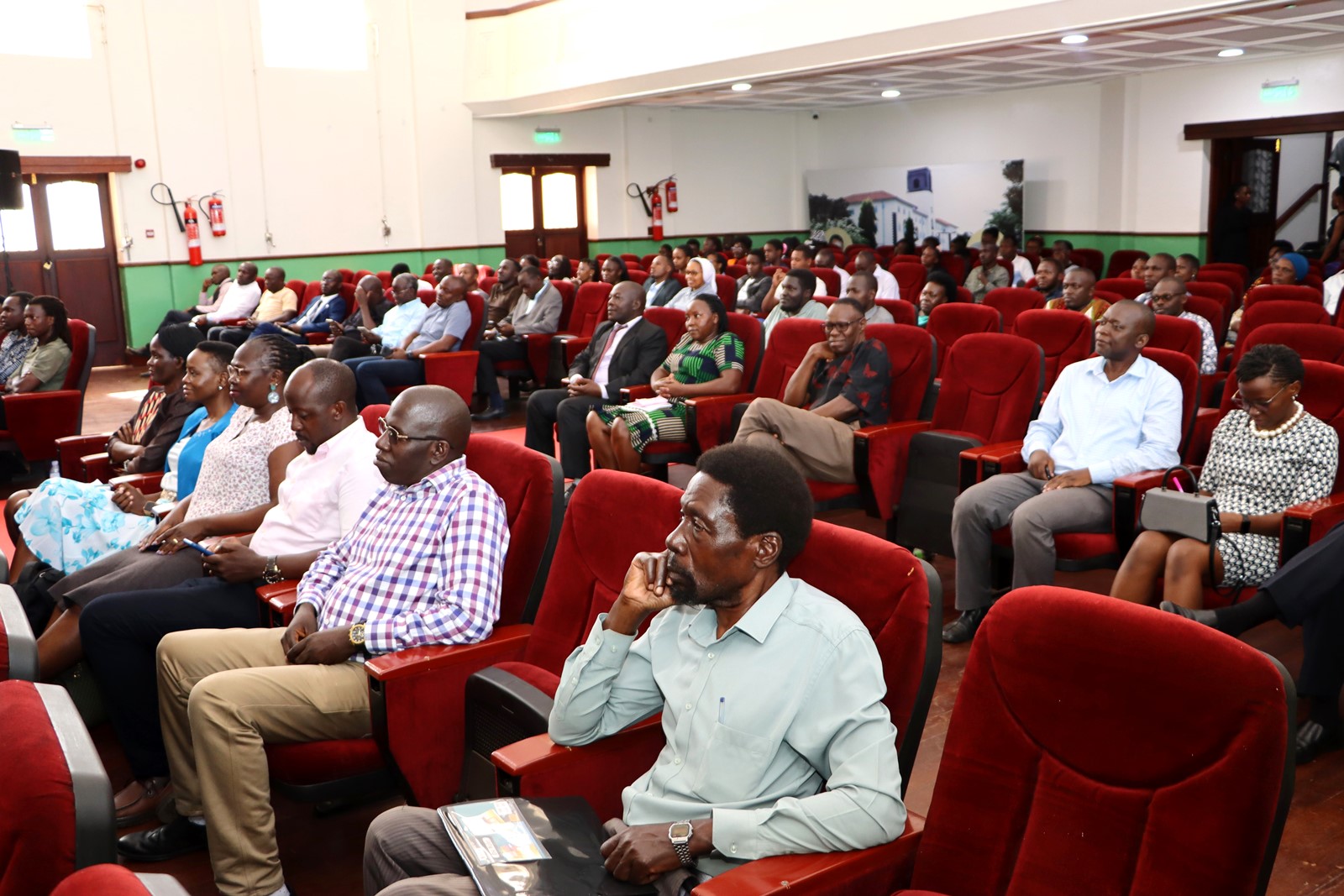
Then, quietly, the conversation turned to the political dangers of art.
“Have you ever censored yourself?” Kiyimba asked Dipio.
She smiled.
“So far, my films have been harmless. But make no mistake—art is political. Even saying it’s not political is a political act.”
She quoted a colleague: “Art disturbs.” And that’s what makes it powerful—and dangerous.
“Where the state seeks to unify, art challenges. It asks hard questions. It stirs the water.”
And yet, art also carries hope.
As the discussion ended, the audience was left with a simple but profound idea: A society can be judged by the art it consumes. In that sense, the future of Uganda’s creative arts isn’t just about budgets, scripts, or shows—it’s about whether its people choose to see themselves on the screen, in the music, in the dance, in the story.
And that choice, perhaps, is the most powerful act of all.
Jane Anyango is the Principal Communication Officer, CHUSS
You may like
-


Over 9,200 to graduate at Makerere University’s 76th Graduation
-


76th Graduation Highlights
-


Mak Selected to Host Alliance for African Partnership Africa Office
-


Meet Najjuka Whitney, The Girl Who Missed Law and Found Her Voice
-


Makerere University School of Public Health Graduates First Cohort of Cost-Effectiveness Analysis Short Course
-


Climate variability found to shape malaria trends in Yumbe District
Humanities & Social Sciences
Meet Najjuka Whitney, The Girl Who Missed Law and Found Her Voice
Published
2 days agoon
February 23, 2026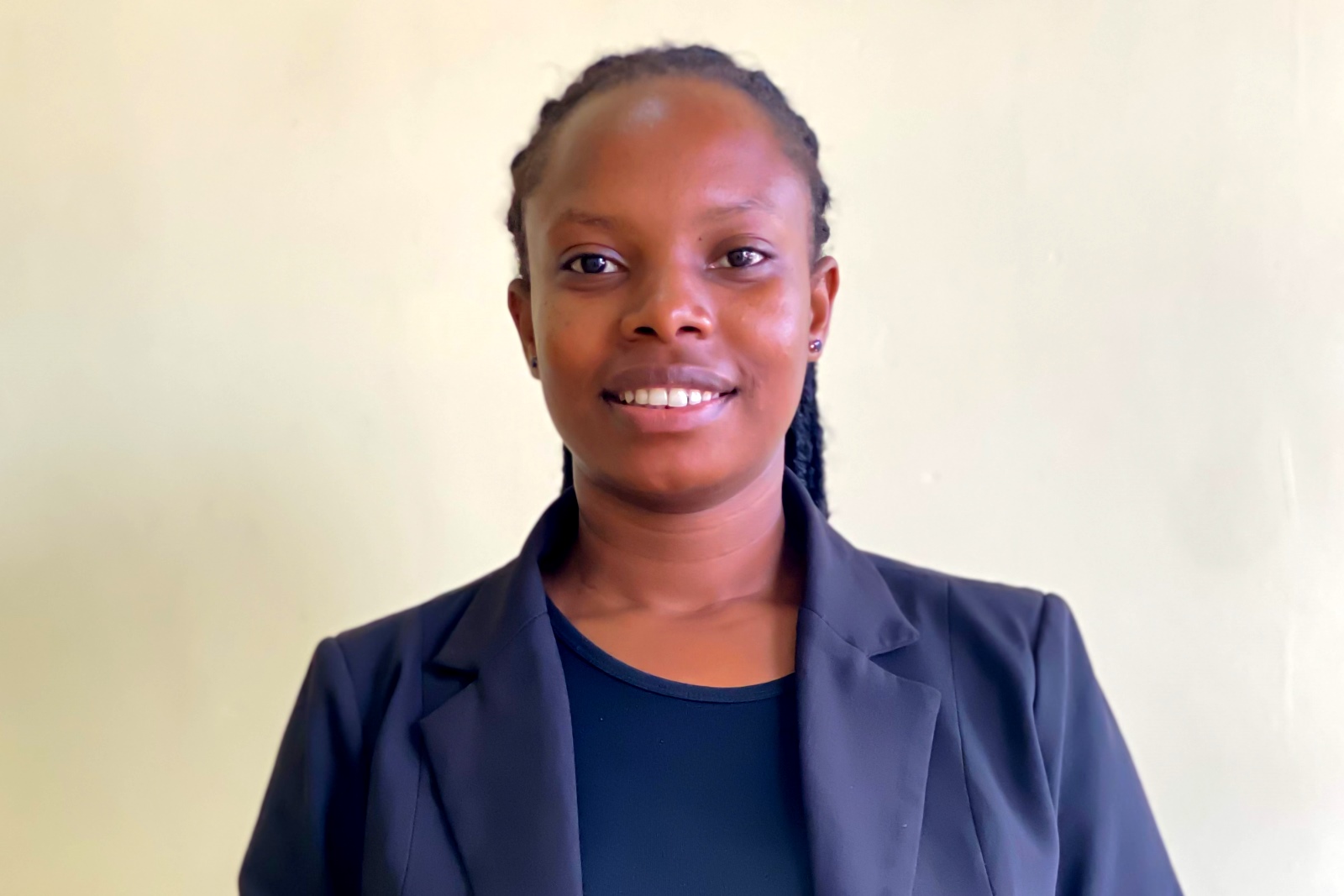
On the morning of Friday, February 27, when the academic procession winds its way across Makerere University’s Freedom Square for the last day of the 76th Graduation Ceremony, Whitney Najjuka will walk into history with a number beside her name: 4.46.
At Makerere, that number means First Class Honours. It means the Vice Chancellor’s List. It means she graduates as the only First-Class student in Journalism and Communication this year. But numbers, as Whitney has learned, rarely tell the full story.
Born on March 27, 2002, in Nabbingo, Kyengera Town Council, to Margaret Kusemererwa and Fred Kasirye, dreamt she would do Law, one of the disciplines, prestigious, almost inevitable next steps for a student who had excelled in secondary school. She had done everything correctly. Studied hard. Scored well. Followed the script.
But Makerere University had other plans. She missed the pre-entry mark, but found her name under Journalism and Communication, another prestigious course offered by the Journalism and Communication Department at Makerere University.
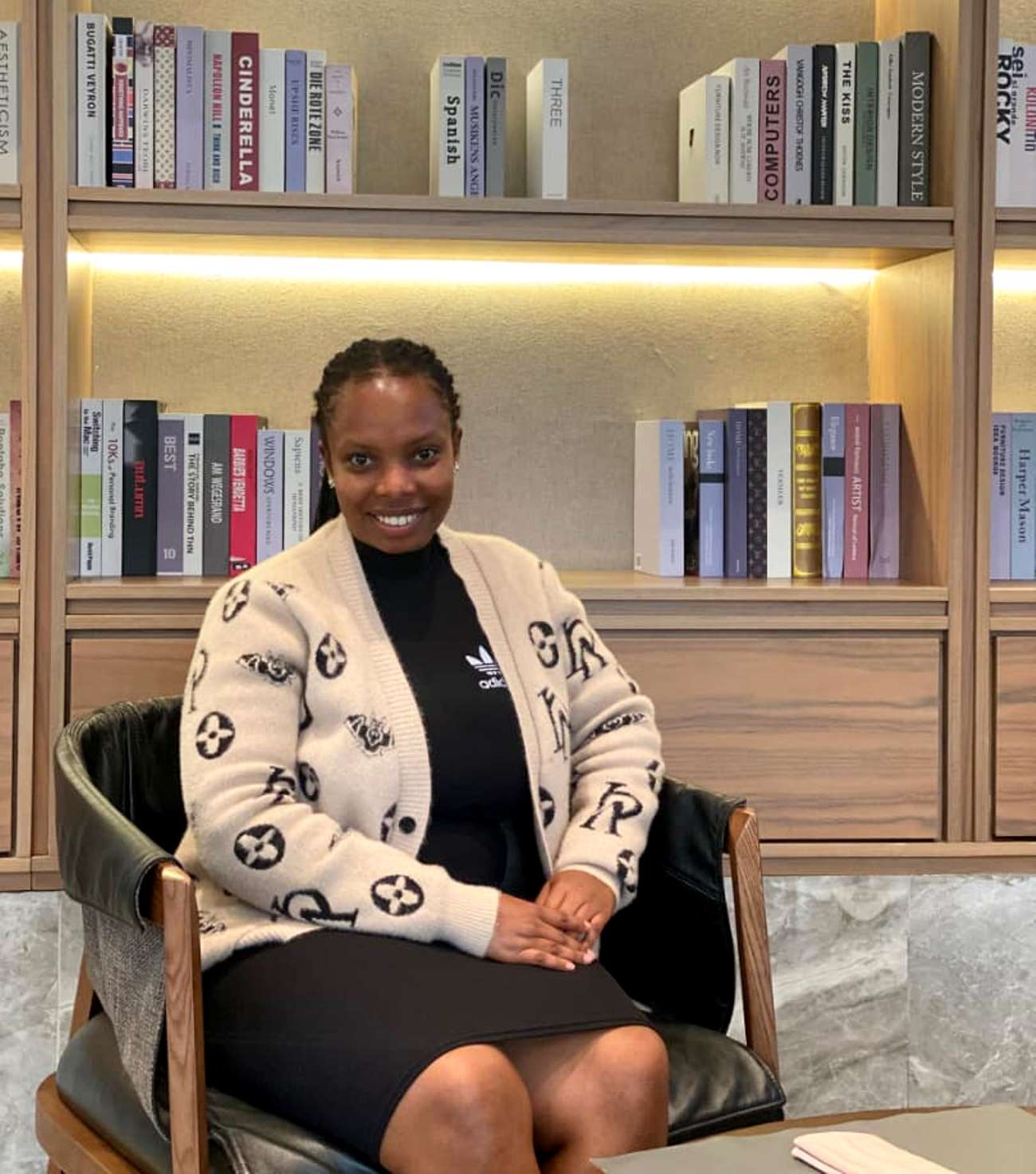
Najjuka began her academic journey at Muto Primary School in Buwama, earning 8 aggregates in the Primary Leaving Examination, a performance that positioned her strongly for secondary school.
She would later join St. Lucia Hill School, Namagoma, where she earned 20 aggregates at O-Level and 17 points in History, Luganda, and Divinity at A-Level.
Missing her dream course, Law, felt at first, like a detour. But Whitney was encouraged by Sanyu Christopher, her uncle, and she settled for a government-sponsored slot in the Bachelor of Journalism and Communication at Makerere, which she had applied for before.
She entered uncertain. But she graduates transformed.
The Pivot That Became a Purpose
Whitney speaks of her early university days with candor. She did not arrive at the Department of Journalism and Communication with a burning childhood ambition to be a journalist, but because another door had closed.
Then, Social and Behavior Change Communication happened. Applied Strategic Communication happened. She began to see media not as headlines and microphones, but as architecture, shaping how societies think, argue, and act.
The turning point came in her third year. The Female Journalist Foundation published her story on Sexual Gender-Based Violence (SGBV) and its emotional toll on survivors. What startled her was not its publication but the reaction. Comments flooded in. Debates ignited, especially about the role of men in combating GBV.
“I realized media doesn’t just report,” she says. “It frames how society views a crisis.”
Her voice, once tentative, had entered a national conversation.
The Discipline Behind 4.46
At Makerere University, a First Class CGPA is not built on brilliance alone but on ritual.
Whitney’s ritual began with showing up, on time, every time. She treated lectures as appointments with her future self. She refused to confine her learning to the syllabus. While attending workshops at the Aga Khan Graduate School of Media and Communication and obtaining external certifications, she sought and was open to mentorship through the Public Relations Association of Uganda (PRAU).
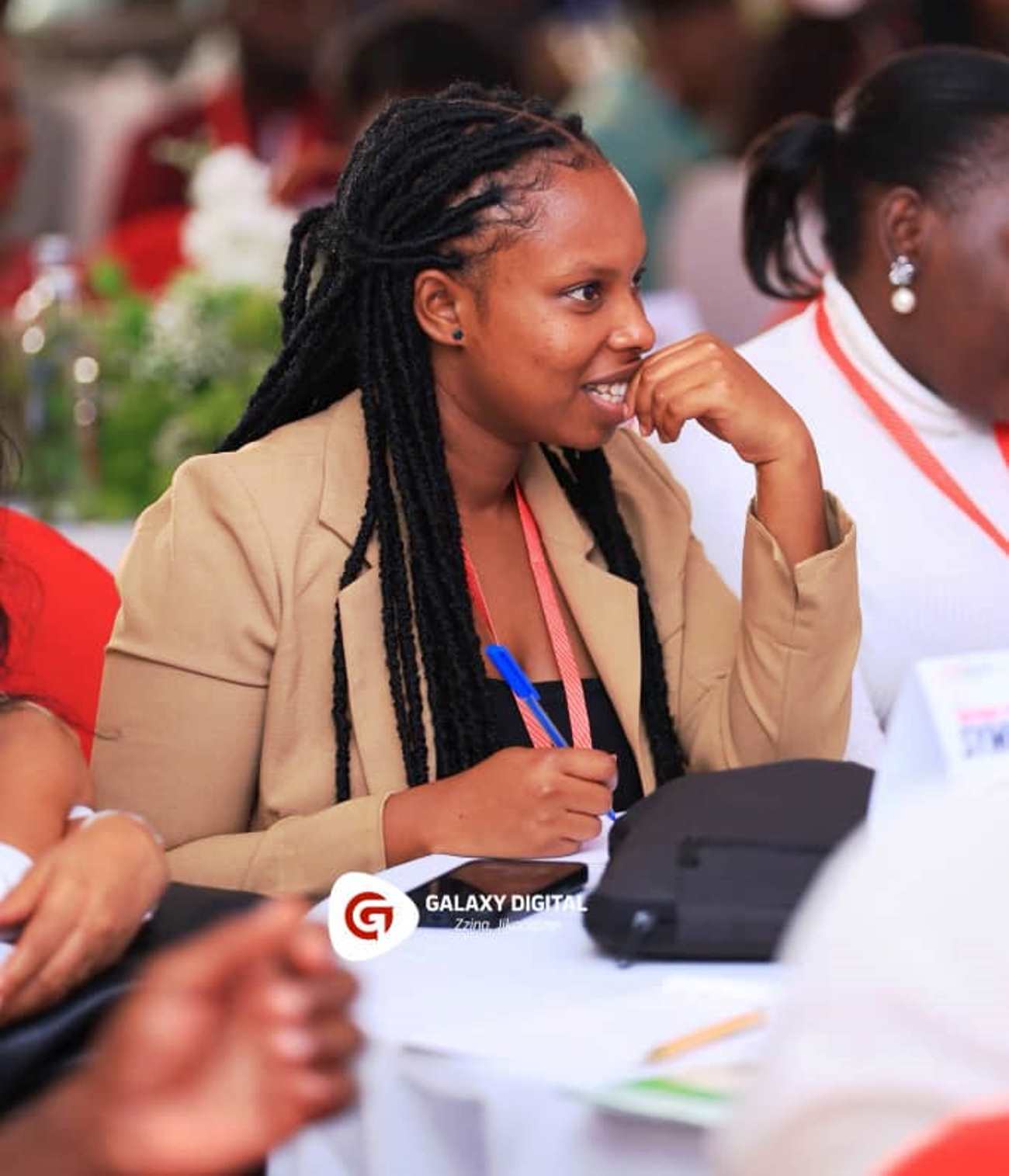
She wanted theory anchored in practice. And then there was the commute.
From Nabbingo, a hill in Wakiso District, some 18.6 km to Kampala, where the Makerere Main campus is situated, and back, nearly 20 hours a week dissolved into Kampala traffic. Two-hour journeys before 8:00 a.m. lectures. Dust. Noise. Headaches. She learned to manage energy the way others manage time. Fatigue became a tutor in resilience.
“I had to be intentional with every remaining hour,” she says. “Excuses were not an option.”
Learning to Practice Communication
If classrooms taught her analysis, presentations taught her courage. Pitching projects, defending research, and standing before peers quick to critique forced her to think on her feet. She was no longer simply studying communication; she was practicing it.
In 2024, the AGMES Fellowship at the Aga Khan Graduate School of Media and Communication pushed her further. She received funding to produce a capstone project on the mental impact of gender-based violence on survivors. She identified sources, conducted interviews, handled trauma with care, and worked with professional editors.
The Communication, she learned, is logistics and ethics as much as eloquence.
The Future She Sees
Whitney is optimistic about Uganda’s media landscape. The digital shift, she believes, has democratized influence. Young communicators are no longer confined to legacy newsrooms or offices.
Yet she sees a gap in the absence of structured research on sustainable, ethical, profitable independent media ventures in Uganda. Her ambition is not only to practice communication, but to study it. To produce data-backed frameworks that help young Ugandans transition from graduates to media entrepreneurs.
She wants to make the impact scalable.
What Remains
As the only First-Class graduate in her cohort, she is careful not to mythologize herself. “Success isn’t brilliance alone,” she says. “It’s a daily commitment when nobody is watching.”
Even before graduation, Whitney had stepped into the industry through a mentorship internship at Capital One Group (COG EA Ltd), a strategic marketing communications agency operating across East Africa.
At Capital One Group, we spoke to Paul Mwirigi Muriungi, the Managing Director and Head of Strategy, who spoke of Najjuka as a progressive and intentional young professional who approaches her work with curiosity, maturity, and responsibility.
“Her attitude is exemplary. She is teachable, receptive to feedback, and eager to grow. While technical skills can be taught, character, work ethic, and mindset determine long-term success, qualities that Whitney consistently demonstrates. Given her academic excellence and professional application, we believe she has a bright future both at Capital One Group and within the wider communications industry. She represents the kind of talent the profession needs: thoughtful, adaptable, and committed to excellence.
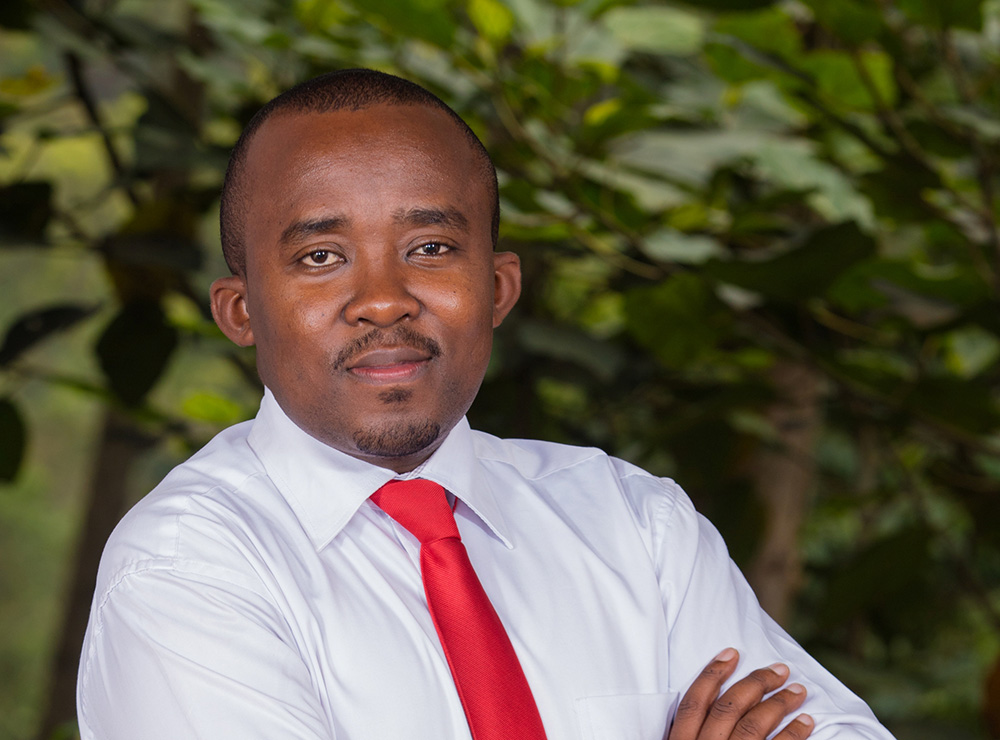
“We look forward to seeing her next chapter unfold,” says Mwirigi.
Najjuka’s gaze extends beyond her own trajectory. She speaks of what the Department could become. Furnished and equipped with industry-standard equipment, newsroom simulations, and deeper investment in data journalism as prayers. Her excellence is not self-congratulatory, but it is forward-looking.
“The University should support the Department to procure industry-standard equipment. Access to high-quality cameras, sound booths, and updated editing software like Adobe Creative Suite is critical to our learning environment,” she says.
Adding that, “We need a newsroom simulation, a physical or digital space where students work under real-time deadlines to produce content for the public. That would prepare us for industry and even strengthen the University’s own media platforms.”
In an era defined by metrics, algorithms, and digital traceability, data journalism is no longer a niche skill but a sine qua non of credible reporting. “There should also be more focus on data journalism and search engine optimization. These are no longer optional skills. Students would benefit immensely from stronger training in these areas.”
Dr. Aisha Nakiwala, the Head, Department of Journalism and Communication, says the faculty are very proud that she is graduating with a First Class—the only one in this year’s cohort.
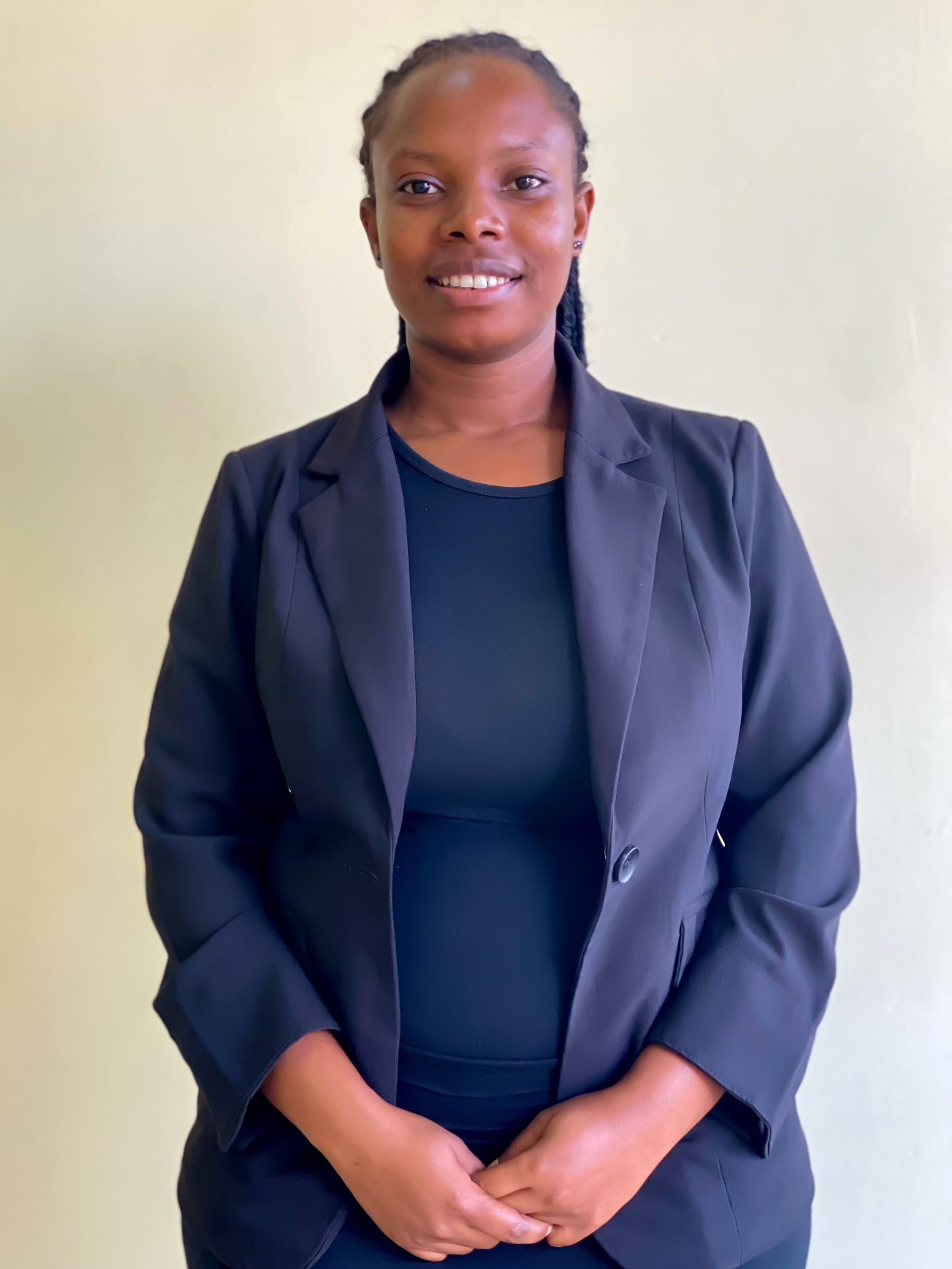
“This achievement reflects not only exceptional intellectual ability but also discipline, resilience, and sustained dedication to the highest standards over four years. Graduating with first-class honors is no small feat; it requires consistent outstanding performance.
“Her accomplishment sets a powerful example for continuing students and reaffirms our department’s commitment to nurturing excellence. We are confident she will make meaningful contributions to the communication profession and society at large,” says Dr. Nakiwala.
On graduation day, applause will crest and recede. The gowns will fold back into wardrobes. The transcripts will be filed away in cabinets. But something quieter will endure; a young woman from Nabbingo who once missed her Law mark, who spent 20 hours a week on the road, who discovered that storytelling is power, and who now walks into Freedom Square not by accident, but by intention.
Life, as she has come to understand it, lives on.
Humanities & Social Sciences
Dr. Pamela Khanakwa Honored for Steering Record 18 PhD Candidates for the Mak 2026 Graduation
Published
1 month agoon
January 23, 2026By
Jane Anyango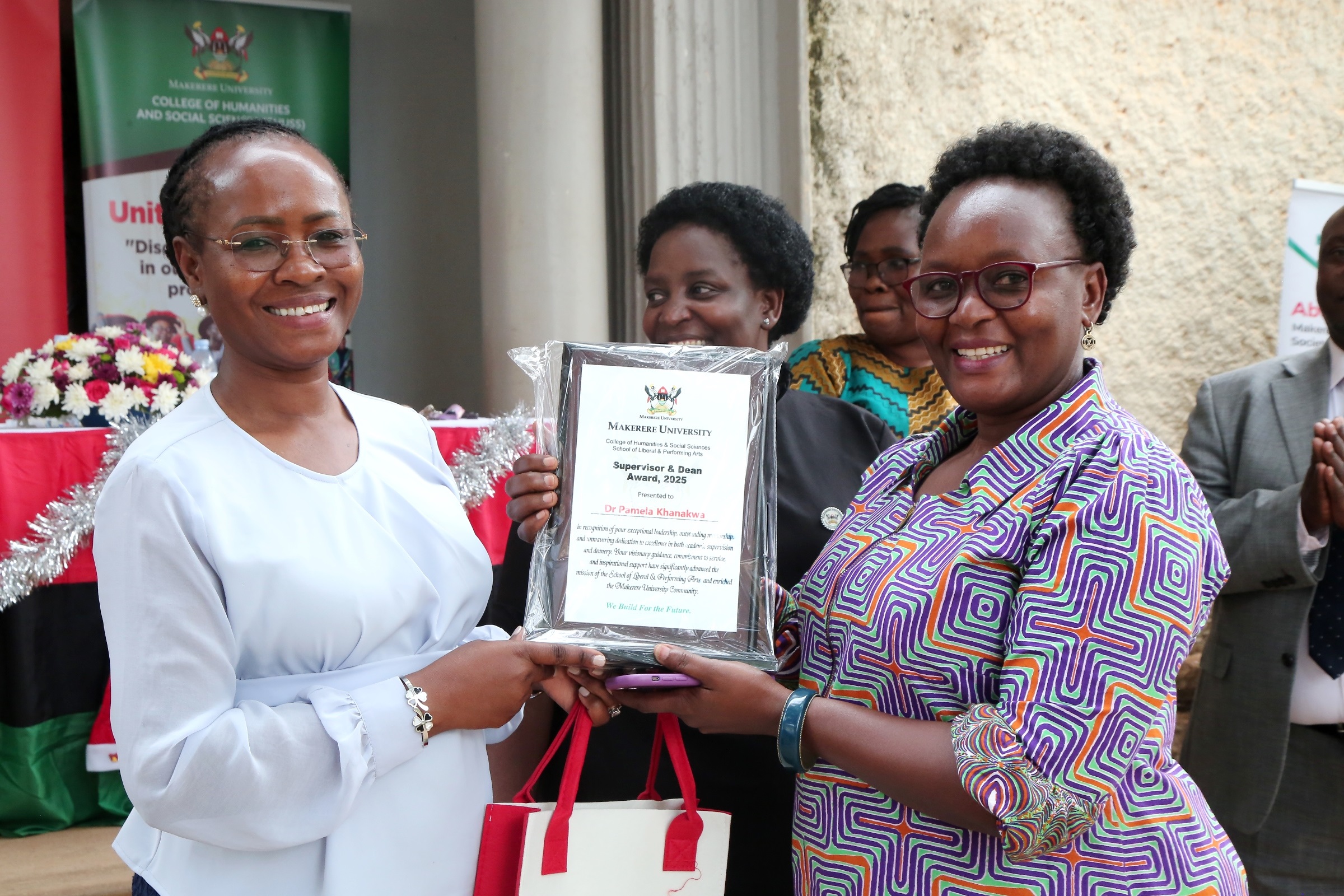
Six personally supervised, three completed in record time, as School of Liberal and Performing Arts sets a historic milestone. Dr. Pamela Khanakwa got the Award as Best PhD Supervisor and Dean
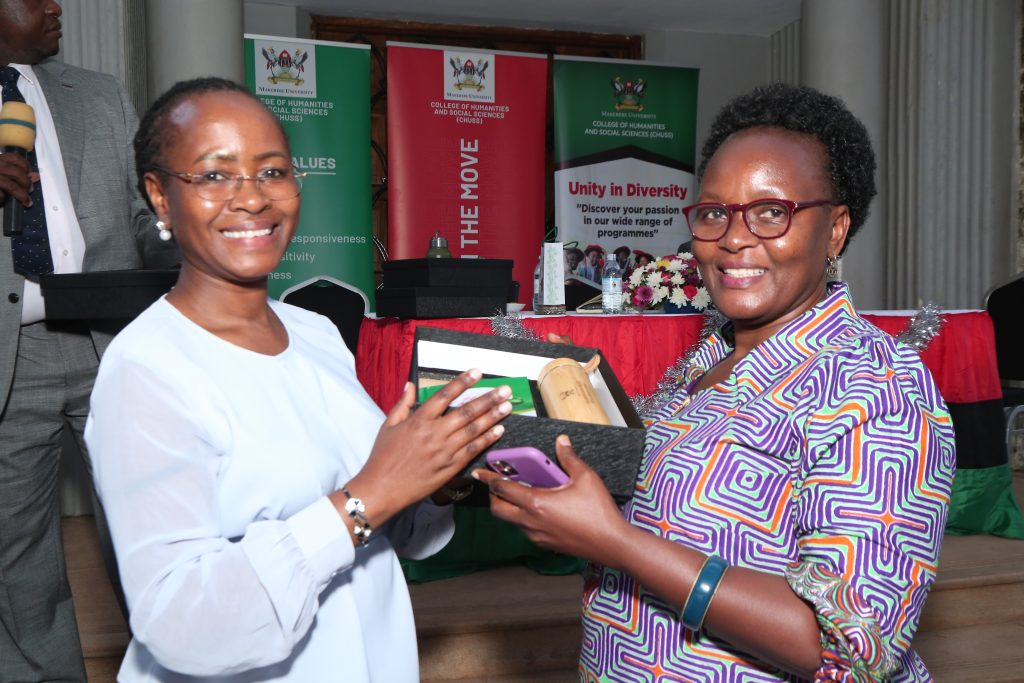
A Historic Academic Milestone for SLPA
The College of Humanities and Social Sciences (CHUSS) recognised the Dean of the School of Liberal and Performing Arts (SLPA), Dr. Pamela Khanakwa, for outstanding academic leadership that has seen the School field 18 PhD candidates for the next 2026 Makerere University Graduation Ceremony scheduled for 24th-27th February. Remarkably, six of these doctoral graduates were directly supervised by Dr. Khanakwa, with three completing within the official three-year timeframe, an exceptional achievement in graduate training. The recognition was announced during the CHUSS End-of-Year Get-Together, where staff applauded Dr. Khanakwa’s dedication, humility, and relentless commitment to postgraduate supervision and timely completion.
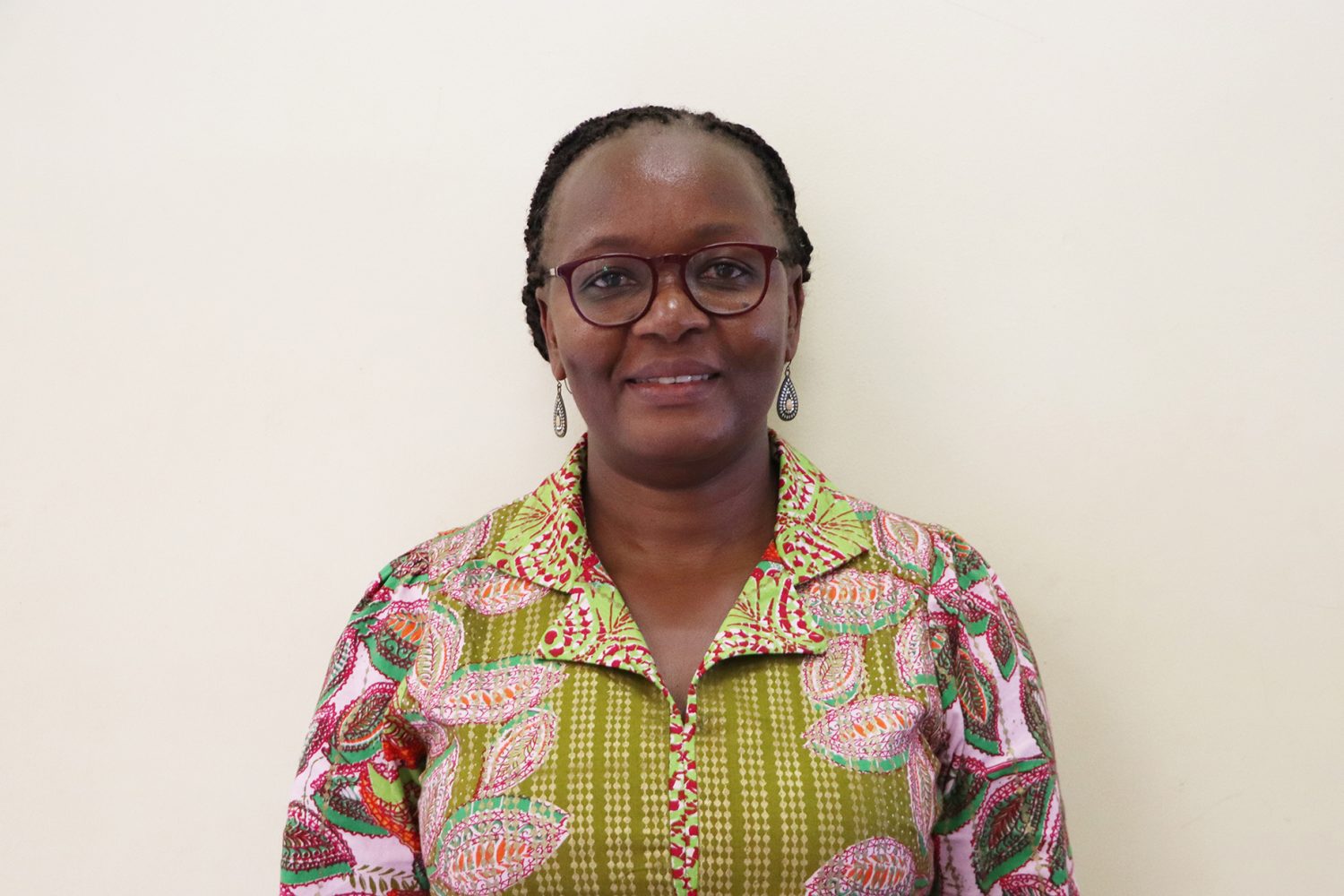
Message to Academic Staff
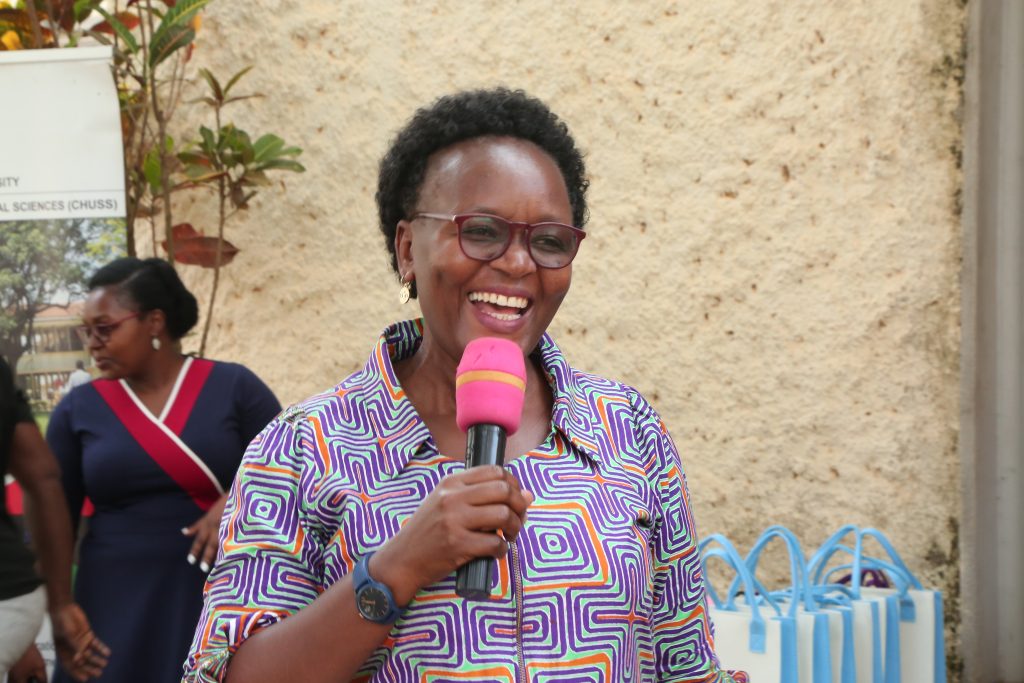
Q: What message do you have for your staff following this achievement?
Dr. Khanakwa:
First, I celebrate my staff and thank them for their dedication to supervision and student support. Academic work is demanding, and material rewards are often limited, but the true satisfaction comes from seeing students succeed.
I encourage my colleagues to remain committed. Yes, the workload is heavy, but many things are possible with dedication and teamwork. Let us continue working for the good of our students, our School, and Makerere University.
Leadership Rooted in Humility
Q: Many colleagues describe you as humble, down to earth, and hardworking. What shapes this character?
Dr. Khanakwa:
I think it is largely my upbringing. My mother was a primary school teacher from the 1950s until the mid-1980s. She worked extremely hard to raise us, combining teaching with farming to ensure we had school fees and basic needs. From her, I learned humility, discipline, and the value of hard work.
I also learned that leadership positions are temporary. You occupy them today, and tomorrow you move on. So humility is essential.
My graduate training also shaped me significantly. My PhD supervisor emphasized that graduate study is a full-time job and that results matter more than noise. Let people see your work through outcomes, not announcements.
Supervision as a Two-Way Commitment
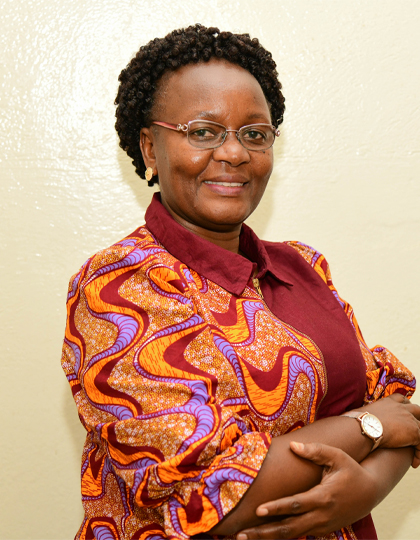
Q: How would you describe your supervision style?
Dr. Khanakwa:
I read my students’ work thoroughly, word by word. Sometimes my comments are tough, but they are honest. Supervision is a two-way commitment. I give feedback, but students must also respond and remain engaged. When that relationship works, progress happens.
Balancing Leadership, Scholarship, and Family
Q: How do you balance being a Dean, scholar, wife, mother, and daughter?
Dr. Khanakwa:
Honestly, I am not sure I balance perfectly. My mother lives far away in Bukwo, so visiting requires careful planning. My children grew up understanding the demands of academic life. I pursued my PhD in the United States and spent long periods away, but we adapted as a family.
Work has become part of my lifestyle. I use weekends to read dissertations, review manuscripts, and write. Sometimes my children ask if I ever sit without working, but this is the commitment I made. As we often say jokingly, “We humbly applied for the job, so let us do the job.”
Scholarship Beyond Supervision
Dr. Khanakwa is also an active scholar and editor. In the past year alone, she has:
- Edited scholarly volumes on archives, memory, method, and pedagogy
- Published a book with Routledge Companion
- Co-authored journal articles and book chapters with graduating students, including Priscah Asiimwe and Anatoli Lwasa Mpijja
“I feel an obligation to write with students,” she notes. “It takes time, energy, and commitment, but it is part of academic mentorship.”
Who Is Dr. Pamela Khanakwa?
Dr. Pamela Khanakwa is the Dean, School of Liberal and Performing Arts, College of Humanities and Social Sciences, Makerere University. She is a seasoned scholar, supervisor, administrator, and mentor whose leadership continues to redefine graduate training excellence. Details about Dr. Pamela Khanakwa can be accessed at: https://chuss.mak.ac.ug/en/personnel/pamela-khanakwa/
More details are available in her attached curriculum vitae.
The CHUSS End- Of-Year-Get-Together
On 12th December, 2025 the college leadership organised a get-together end of year gathering to take stock of the achievements, challenges and brainstorm together on how to move forward. The event was marked by entertainment, team building games, appreciation speeches, sharing a meal and a Christmas package for every staff
Retirees and staff recognised
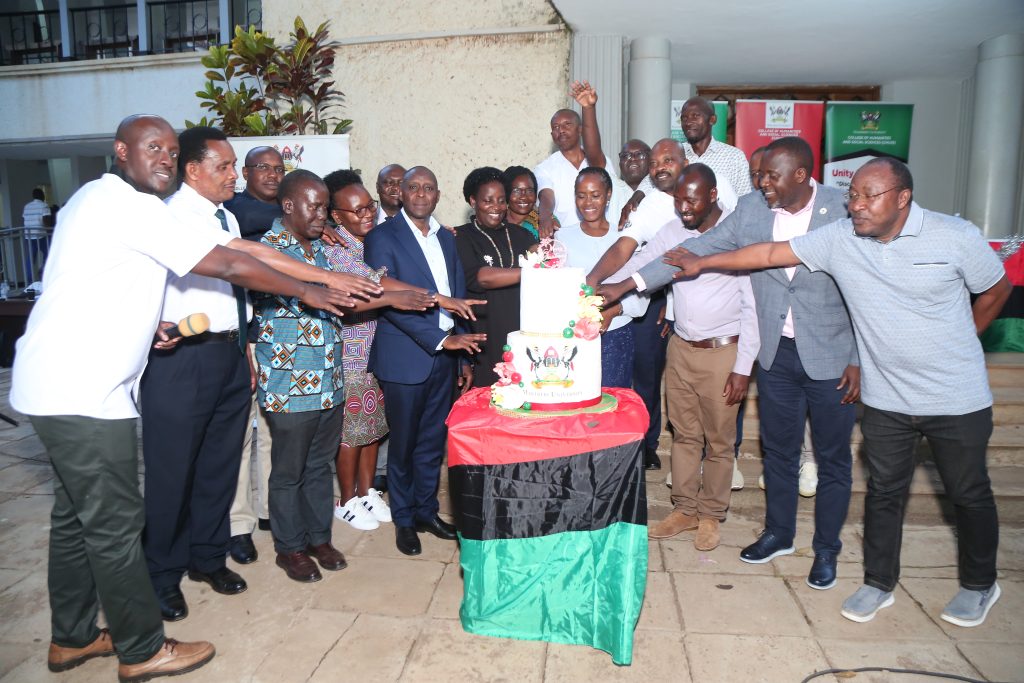
Five retired staff Dr. Micheal Wangotta Masakala, Dr. Anatole Kirigwajjo and Dr. Jackson Kizza Mukas (all from the School of Languages, Literature and Communication), Assoc. Prof. Florence Nansubuga (School of Psychology), Dr. Tusabe Gervase (School of Liberal and Perforing Arts) and Ms. Scovia Nganda Sekweyama (secretary from the School of Social Sciences) were recognised for their dedicated services to the university.
In addition to Dr. Pamela Khanakwa’s Award as Best PhD Supervisor and Dean, Ms. Birabwa Florence scooped the award of Best Registrar of the year. Birabwa is the registrar for the School of Liberal and Performing Arts.
Administrative and support staff including Ms. Mary Gyezaho and Annet Kashumbusha(both administrative secretaries in the Principals office), Farouq Lule (IT Officer), Godfrey Kakooza (cleaner), Charles Sebuguzi (driver) and Jane Anyango (Communications officer) were recognise with awards for outstanding service. Dr. Mohamed Mayanja Kajumba was from the School of Pyschology was recognised as the person with an outstanding talent in Handwriting.
The celebrations held in the Arts quadrangle were graced by the Vice Chancellor Academic Affairs Prof. Sarah Ssali and the Deputy Vice Chancellor in charge of Finance and Adminstration Prof. Ireeta Tumps.
Humanities & Social Sciences
Ugandan Journalists Trained on Peace and Gender-Sensitive Reporting Ahead of 2026 Elections
Published
2 months agoon
January 9, 2026By
Jane Anyango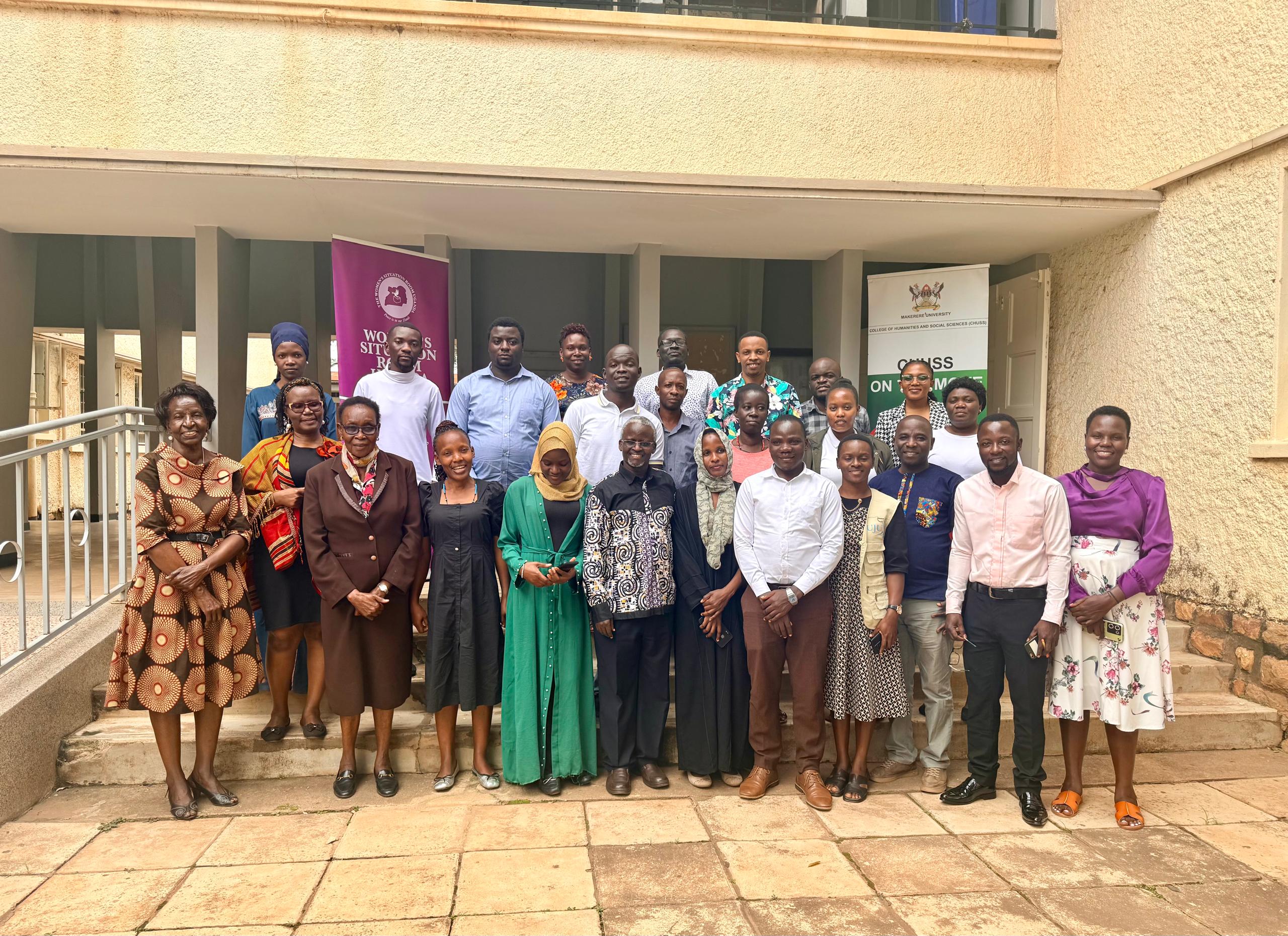
Kampala, Uganda – January 9, 2026
Ahead of the January 15 general elections, Ugandan journalists have undergone specialized training on peace and gender-sensitive reporting to ensure responsible media coverage during the election period. The two-day training, held from 8th to 9th January 2026 at Makerere University’s College of Humanities and Social Sciences Smart Room, was organized by the Women’s Situation Room (WSR) in partnership with various stakeholders and brought together journalists from across print, broadcast, and online platforms.
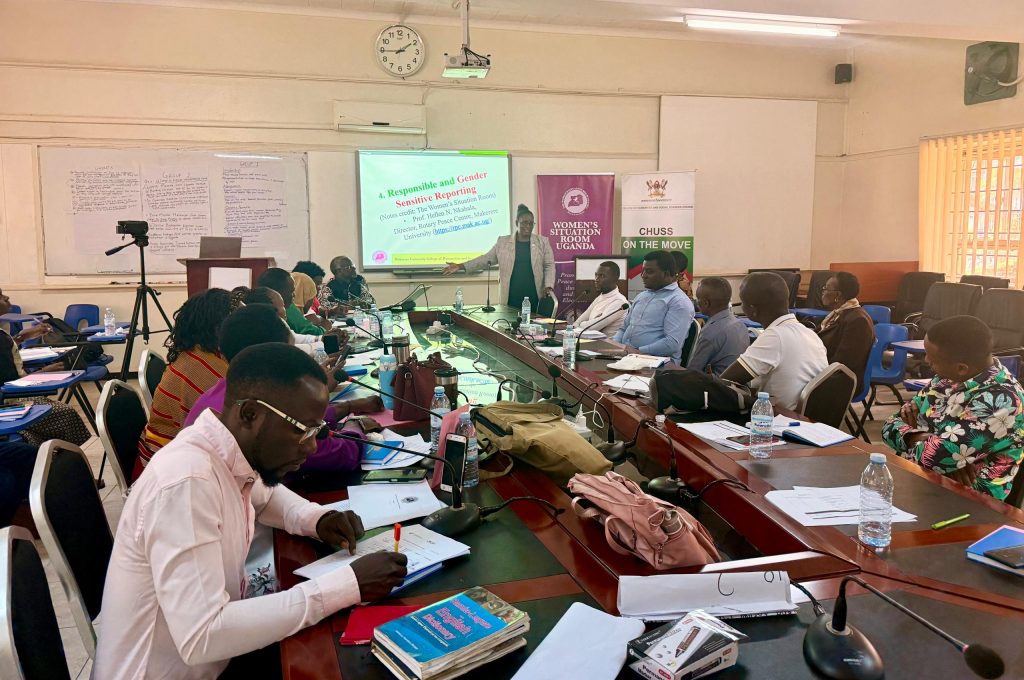
The main objective of the training was to strengthen the capacities of media in reporting and documenting electoral processes in a responsible and gender-sensitive manner. The specific objectives included: strengthening journalists’ skills to cover the 2026 elections in a fair, balanced, gender-sensitive, and non-violent partisan way; enhancing the role of media to enable citizens to be well-informed and actively participate in the election process; ensuring focused and balanced reporting on peace during and after elections; and strengthening partnerships between the WSR and media houses during the election period.
The training covered multiple critical modules. Day one focused on responsible conflict-sensitive reporting, emphasizing principles such as balance, impartiality, and accuracy. Participants explored the role of media as a relayer of the population’s voice, election monitor, catalyst for social cohesion and reconciliation, contributor to the accountability of political actors, and a platform for detecting and debunking digital media misinformation and hate speech.
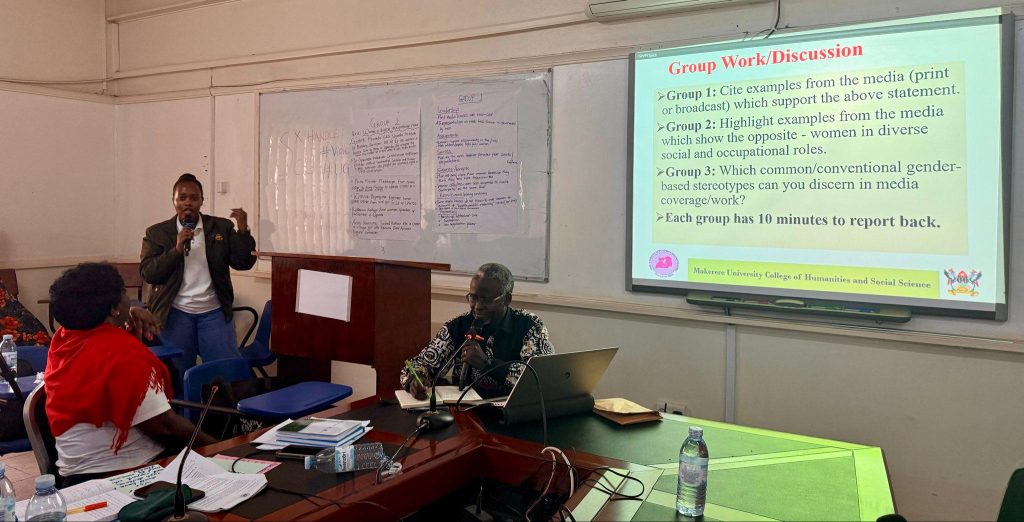
Day two addressed responsible and gender-sensitive reporting. Key aspects included the definition of gender-sensitive reporting, how to become a gender-sensitive reporter, critical elements in reporting with gender awareness, packaging gender-sensitive stories, and a checklist for detecting and avoiding gender-insensitive reporting.
Her Lordship, retired Judge Justice Mary Mayitum, emphasized the importance of peace as the foundation of development and democratic engagement. “Because we value peace more than anything. Without peace, really, you can do nothing. But where there is peace, you can have time to reflect, discuss with others, and join in meaningful dialogue,” she said. She warned that the country’s past conflicts, such as those in Gulu, underscored the necessity of maintaining national harmony.
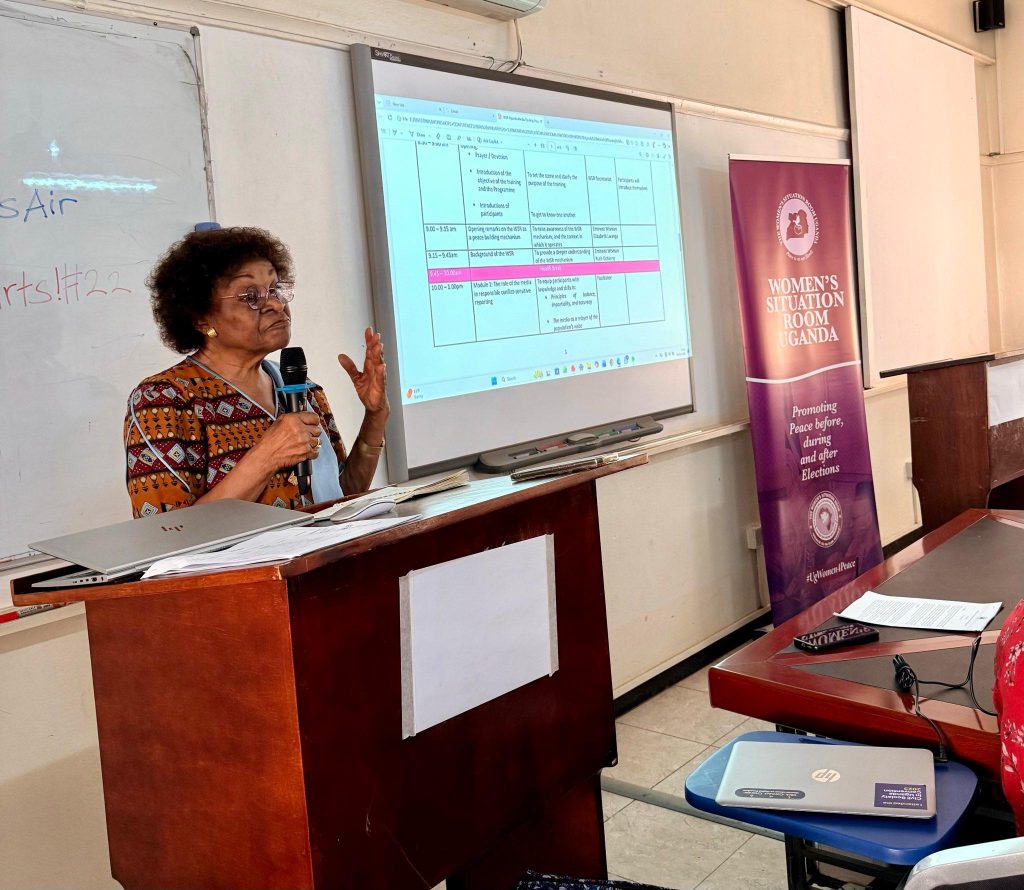
Justice Mayitum also urged other key election stakeholders to uphold peaceful conduct. “Being peaceful is the very heart of life. We have spoken to police, security personnel, political parties, and the Electoral Commission. We want politicians to have a code of conduct and to understand that it’s okay to think differently without fighting or hating one another,” she added.
Dr. William Tayebwa, lead facilitator and senior lecturer in the Department of Journalism and Communication at Makerere University, said, “This training is about conflict-sensitive reporting, peace journalism, and gender-sensitive reporting in the context of the elections. The emphasis was on giving female political candidates a voice while ensuring journalists report responsibly on election-related matters.”
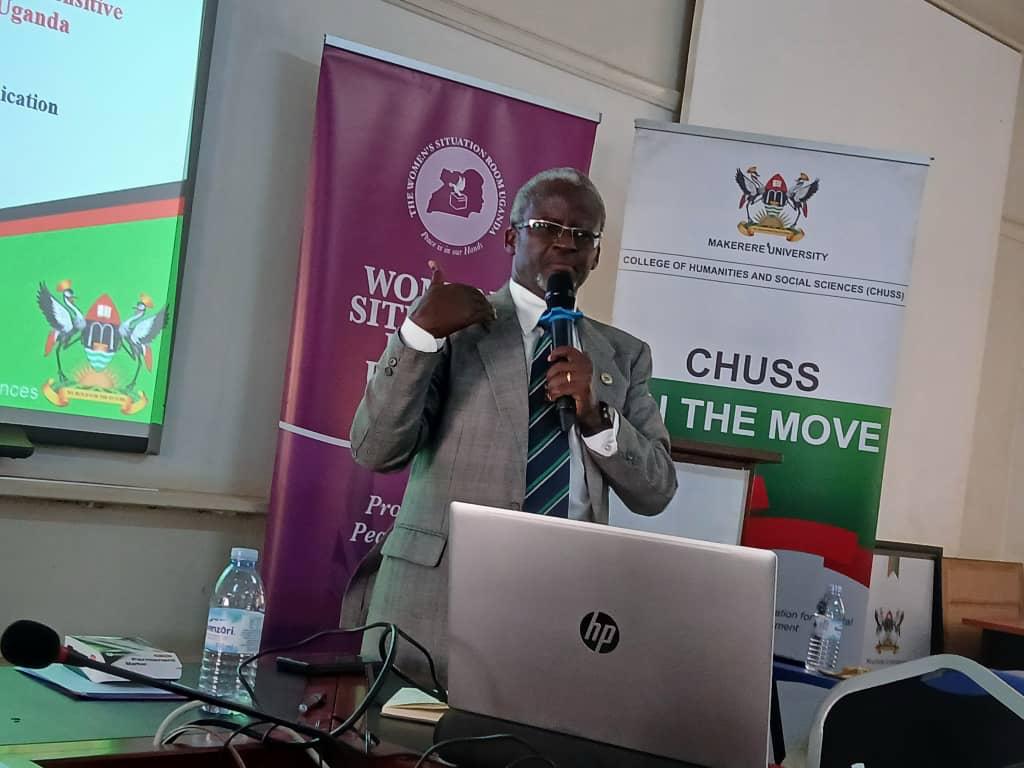
Participants described the training as timely and impactful. Tony Banizengabo of CBS Wakiso District said, “We’ve benefited a lot. We’ve been trained to write stories which bring peace, not conflict. Ahead of the elections, we are very ready to be part of peacemakers.”
Dorcas Kimono of UBC TV Kampala added, “It was so timely and rich. We learned how to report without promoting or fueling violence, giving voice to victims without angering them or encouraging violators. This is very vital, especially as we approach the 2026 elections.”
The training aims to equip media personnel with the knowledge and skills to uphold professional ethics while contributing to a peaceful, inclusive, and gender-sensitive electoral process.
Trending
-

 Humanities & Social Sciences2 days ago
Humanities & Social Sciences2 days agoMeet Najjuka Whitney, The Girl Who Missed Law and Found Her Voice
-

 Health6 days ago
Health6 days agoUganda has until 2030 to end Open Defecation as Ntaro’s PhD Examines Kabale’s Progress
-

 Agriculture & Environment5 days ago
Agriculture & Environment5 days agoUganda Martyrs Namugongo Students Turn Organic Waste into Soap in an Innovative School Project on Sustainable Waste Management
-

 General6 days ago
General6 days agoMastercard Foundation Scholars embrace and honour their rich cultural diversity
-

 Health2 weeks ago
Health2 weeks agoCall for Applications: Short Course in Molecular Diagnostics March 2026
